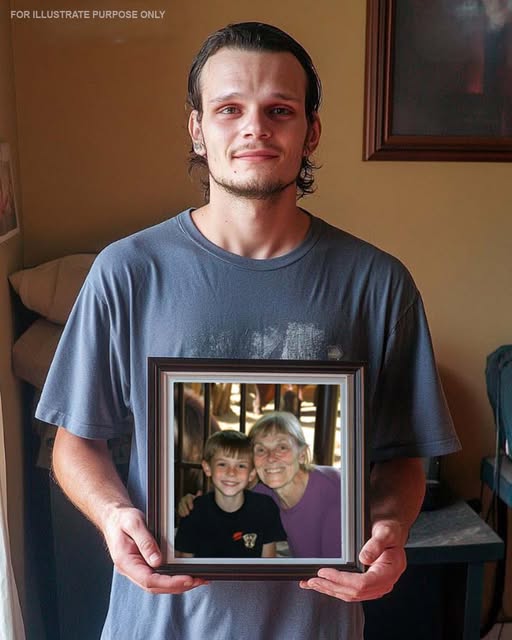After my beloved grandmother passed away, I was left only with a photograph. Everything else was taken by my mother and sister. But when the dust settled, I discovered the truth: Grandma hadn’t disinherited me. I had inherited something far more valuable than money — a purpose.
Some people remember childhood as a golden time, with warm milk before bed, stories, family dinners, and bike rides in the yard.
Not me. Everything changed the day Grandma Grace entered my life.
My mother, Delia, made many poor choices over the years. My sister, Cynthia, followed in her footsteps, but colder, harsher.
And I? I was just there — a shadow, never quite earning love at home.
When I was six, Grandma Grace took me away. Without asking, with a gentle smile, she prepared me for a new journey.
“Tom, you’re coming with me,” she said softly.
From that day on, she became my home.
She sent me letters for lunch at school. At every concert, she was in the front row, cheering.
She sold an old bracelet to buy my college books. When she spoke, the room fell silent — not because she raised her voice, but because she spoke from the heart.
When my mother died, I felt like a lost, small child again.
At the funeral, I cried more than ever. Delia and Cynthia shed fake tears and noise.
Then came the reading of the will.
In a cold, small room, the lawyer handed out the property: the house to my mother, the car to my sister.
Me? Just one envelope. Like a parking ticket.
My mother mocked me, saying the envelope held nothing important.
But inside was only a photograph — an old picture of me at the zoo, my goofy smile, and my grandmother’s loving eyes.
No money. No property.
I was stunned. Silent.
But when I got home, amidst my mother’s shouting, I secretly pulled the photo from its frame.
Behind it was another envelope, with papers and a key to a safety deposit box.
Inside were deeds, shares, and a letter from Grandma:
“True wealth makes no noise. Grandma G.”
My heart pounded. This was more than money — it was a gift and a responsibility.
The next day, I quit my job and went to the bank.
In the safety box, I found hidden properties: five rental houses, shares in a shipping company, and a plot of land beneath my mother’s house.
That last one shocked my mother: she owned the house, but the land belonged to me.
Grandma had played it smart, leaving me the benefits without making it obvious.
My mother exploded with anger, but I stayed calm.
I told her, “You’re the tenant, but I own the land. You pay rent to me.”
She screamed threats and insults.
Meanwhile, my sister struggled with debts and a failed plan to sell Grandma’s car.
Instead of leaving them to suffer, I offered to buy the house under a simple agreement — to honor Grandma’s memory.
I paid, and became the owner.
But the house wasn’t for me.
With the help of a good contractor, I turned it into a place where people in need could find warmth and support.
I named it “Grace’s Corner” — a place where children read, women found peace, and no one went hungry.
In one quiet corner, I placed an old chair for anyone who needed to cry or be alone.
We gave bread, tea, and everything with love.
A former friend came every week to give free haircuts, her patience and kindness speaking louder than words.
One day, my sister came asking for help.
I was calm.
I said, “I have no money for you, but you’re welcome to help and learn how to be the kind of person Grandma would have loved.”
She sat in Grace’s chair, tired and safe.
I said, “I own the land. This place is for those in need. And for the memory of the woman who made me feel chosen.”
And so, from a simple photograph, came a great legacy — love, home, and a new mission to help others.

I knew from the start Grandma was wise and had left the best for you. This is a beautiful ending. God bless.